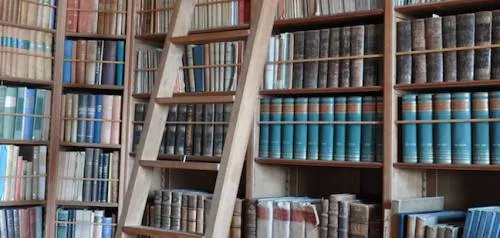
5 Books That Made Me Want to Become A Librarian
This content contains affiliate links. When you buy through these links, we may earn an affiliate commission.
Now that I’m in my final semester of my graduate program in library science, I look back to the start of the journey. I had wanted to go to get my MLIS for several years before I finally applied. What put me over the edge? A few life-changing reads. The following books pushed me to apply to library school and embark on a different path in life. These books shaped my career direction, each in a different way.
 The Time Traveler’s Wife – Audrey Niffenegger
This was one of the first books I read for pleasure after graduating from college in 2011. My English degree had prepared me well in my field of concentration, Victorian and early Twentieth Century literature, but I had spent roughly four years inside that bubble. The Time Traveler’s Wife not only introduced me to current literature, it got me back in the stacks, as it was one of the first books I borrowed from my hometown library after returning to live with my parents after graduation. Some of my friends had read it too, and I felt like I was able to talk about literature with them again, sparking an interest in discussing contemporary literature. And let’s face it, Henry the hot librarian protagonist does wonders for the imagination. I couldn’t help but think I’d meet some handsome, time traveling librarian with a tortured past if I were to ever attend library school (spoiler alert: I didn’t).
The Time Traveler’s Wife – Audrey Niffenegger
This was one of the first books I read for pleasure after graduating from college in 2011. My English degree had prepared me well in my field of concentration, Victorian and early Twentieth Century literature, but I had spent roughly four years inside that bubble. The Time Traveler’s Wife not only introduced me to current literature, it got me back in the stacks, as it was one of the first books I borrowed from my hometown library after returning to live with my parents after graduation. Some of my friends had read it too, and I felt like I was able to talk about literature with them again, sparking an interest in discussing contemporary literature. And let’s face it, Henry the hot librarian protagonist does wonders for the imagination. I couldn’t help but think I’d meet some handsome, time traveling librarian with a tortured past if I were to ever attend library school (spoiler alert: I didn’t).
 The Fault in Our Stars – John Green
Reading The Fault in Our Stars ushered in a new level of bookish nerd-dom. I read it the winter it came out in 2012, and at that point it was pretty under the radar among readers I knew, especially the adult readers. After I finished the novel, I went online and was ushered deeper into bookish culture, including visiting teen librarian blogs and learning more about youth services and YA in general. I bonded with my teen niece over the novel, which inspired me to consider becoming a young adult services librarian and encourage reading more amazing books. Nothing gets you more excited about embarking on a bookish career path than having energizing and enthusiastic conversations about books with youth.
The Fault in Our Stars – John Green
Reading The Fault in Our Stars ushered in a new level of bookish nerd-dom. I read it the winter it came out in 2012, and at that point it was pretty under the radar among readers I knew, especially the adult readers. After I finished the novel, I went online and was ushered deeper into bookish culture, including visiting teen librarian blogs and learning more about youth services and YA in general. I bonded with my teen niece over the novel, which inspired me to consider becoming a young adult services librarian and encourage reading more amazing books. Nothing gets you more excited about embarking on a bookish career path than having energizing and enthusiastic conversations about books with youth.
 Gone Girl – Gillian Flynn
I read Gone Girl over my summer vacation in 2013. I didn’t have a lot of bookish friends at work at the time, so I didn’t feel like I had a real nurturing environment. I tore through this novel that was then the buzz book of the season (and year, really). After I finished Gone Girl I went to the library and checked out books that I felt were similar to Gone Girl. I also read some reader’s advisory literature online for Gone Girl fans. I started to absorb how librarians talk about and recommend books. Being a part of the conversation about a book that was very much at the top of the zeitgeist at the moment was exciting. I wanted to be working in a place where we talked about the biggest publishing events of the day, not just with staff, but sharing it with readers everywhere.
Gone Girl – Gillian Flynn
I read Gone Girl over my summer vacation in 2013. I didn’t have a lot of bookish friends at work at the time, so I didn’t feel like I had a real nurturing environment. I tore through this novel that was then the buzz book of the season (and year, really). After I finished Gone Girl I went to the library and checked out books that I felt were similar to Gone Girl. I also read some reader’s advisory literature online for Gone Girl fans. I started to absorb how librarians talk about and recommend books. Being a part of the conversation about a book that was very much at the top of the zeitgeist at the moment was exciting. I wanted to be working in a place where we talked about the biggest publishing events of the day, not just with staff, but sharing it with readers everywhere.
 The Buddha in the Attic – Julie Otsuka
Julie Otsuka’s novel The Buddha in the Attic was something I checked out from the library on the recommendation of a friend. I didn’t know much about the novel, but I decided to give it a try. I found The Buddha in the Attic to be absolutely captivating. A small book, it is nevertheless a powerful one. This was such a positive library experience for me because it was a book that, after I read it, I just couldn’t shut up about it. I requested many books that I thought might capture Otsuka’s bewitching prose style. This book also made me want to be in a book club or at least lead one because I found the book overflowing with discussion points and provocative questions. This point actually leads me to the final book blow, The Secret History.
The Buddha in the Attic – Julie Otsuka
Julie Otsuka’s novel The Buddha in the Attic was something I checked out from the library on the recommendation of a friend. I didn’t know much about the novel, but I decided to give it a try. I found The Buddha in the Attic to be absolutely captivating. A small book, it is nevertheless a powerful one. This was such a positive library experience for me because it was a book that, after I read it, I just couldn’t shut up about it. I requested many books that I thought might capture Otsuka’s bewitching prose style. This book also made me want to be in a book club or at least lead one because I found the book overflowing with discussion points and provocative questions. This point actually leads me to the final book blow, The Secret History.
 The Secret History – Donna Tartt
The Secret History is quite simply one of the best books I’ve ever read and certainly one of my all-time favorites. Testing the waters of my potential future as a librarian, I started a “Cult Classics” book club in my area. The Secret History was one of our best discussions with people of all ages contributing to the dialogue. Our group usually met in a community room in borough hall, which also housed the library, and after we wrapped up I often went to the library and felt dizzy with excitement and high off the buzz of leading a book discussion. I walked around the library thinking, “this is where I belong.”
The Secret History – Donna Tartt
The Secret History is quite simply one of the best books I’ve ever read and certainly one of my all-time favorites. Testing the waters of my potential future as a librarian, I started a “Cult Classics” book club in my area. The Secret History was one of our best discussions with people of all ages contributing to the dialogue. Our group usually met in a community room in borough hall, which also housed the library, and after we wrapped up I often went to the library and felt dizzy with excitement and high off the buzz of leading a book discussion. I walked around the library thinking, “this is where I belong.”
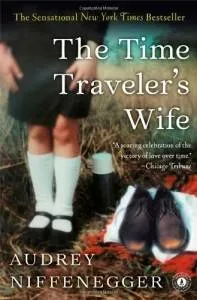 The Time Traveler’s Wife – Audrey Niffenegger
This was one of the first books I read for pleasure after graduating from college in 2011. My English degree had prepared me well in my field of concentration, Victorian and early Twentieth Century literature, but I had spent roughly four years inside that bubble. The Time Traveler’s Wife not only introduced me to current literature, it got me back in the stacks, as it was one of the first books I borrowed from my hometown library after returning to live with my parents after graduation. Some of my friends had read it too, and I felt like I was able to talk about literature with them again, sparking an interest in discussing contemporary literature. And let’s face it, Henry the hot librarian protagonist does wonders for the imagination. I couldn’t help but think I’d meet some handsome, time traveling librarian with a tortured past if I were to ever attend library school (spoiler alert: I didn’t).
The Time Traveler’s Wife – Audrey Niffenegger
This was one of the first books I read for pleasure after graduating from college in 2011. My English degree had prepared me well in my field of concentration, Victorian and early Twentieth Century literature, but I had spent roughly four years inside that bubble. The Time Traveler’s Wife not only introduced me to current literature, it got me back in the stacks, as it was one of the first books I borrowed from my hometown library after returning to live with my parents after graduation. Some of my friends had read it too, and I felt like I was able to talk about literature with them again, sparking an interest in discussing contemporary literature. And let’s face it, Henry the hot librarian protagonist does wonders for the imagination. I couldn’t help but think I’d meet some handsome, time traveling librarian with a tortured past if I were to ever attend library school (spoiler alert: I didn’t).
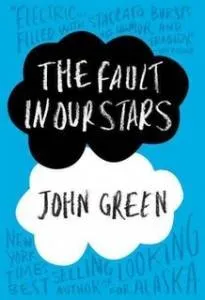 The Fault in Our Stars – John Green
Reading The Fault in Our Stars ushered in a new level of bookish nerd-dom. I read it the winter it came out in 2012, and at that point it was pretty under the radar among readers I knew, especially the adult readers. After I finished the novel, I went online and was ushered deeper into bookish culture, including visiting teen librarian blogs and learning more about youth services and YA in general. I bonded with my teen niece over the novel, which inspired me to consider becoming a young adult services librarian and encourage reading more amazing books. Nothing gets you more excited about embarking on a bookish career path than having energizing and enthusiastic conversations about books with youth.
The Fault in Our Stars – John Green
Reading The Fault in Our Stars ushered in a new level of bookish nerd-dom. I read it the winter it came out in 2012, and at that point it was pretty under the radar among readers I knew, especially the adult readers. After I finished the novel, I went online and was ushered deeper into bookish culture, including visiting teen librarian blogs and learning more about youth services and YA in general. I bonded with my teen niece over the novel, which inspired me to consider becoming a young adult services librarian and encourage reading more amazing books. Nothing gets you more excited about embarking on a bookish career path than having energizing and enthusiastic conversations about books with youth.
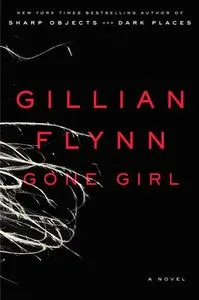 Gone Girl – Gillian Flynn
I read Gone Girl over my summer vacation in 2013. I didn’t have a lot of bookish friends at work at the time, so I didn’t feel like I had a real nurturing environment. I tore through this novel that was then the buzz book of the season (and year, really). After I finished Gone Girl I went to the library and checked out books that I felt were similar to Gone Girl. I also read some reader’s advisory literature online for Gone Girl fans. I started to absorb how librarians talk about and recommend books. Being a part of the conversation about a book that was very much at the top of the zeitgeist at the moment was exciting. I wanted to be working in a place where we talked about the biggest publishing events of the day, not just with staff, but sharing it with readers everywhere.
Gone Girl – Gillian Flynn
I read Gone Girl over my summer vacation in 2013. I didn’t have a lot of bookish friends at work at the time, so I didn’t feel like I had a real nurturing environment. I tore through this novel that was then the buzz book of the season (and year, really). After I finished Gone Girl I went to the library and checked out books that I felt were similar to Gone Girl. I also read some reader’s advisory literature online for Gone Girl fans. I started to absorb how librarians talk about and recommend books. Being a part of the conversation about a book that was very much at the top of the zeitgeist at the moment was exciting. I wanted to be working in a place where we talked about the biggest publishing events of the day, not just with staff, but sharing it with readers everywhere.
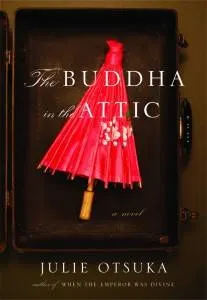 The Buddha in the Attic – Julie Otsuka
Julie Otsuka’s novel The Buddha in the Attic was something I checked out from the library on the recommendation of a friend. I didn’t know much about the novel, but I decided to give it a try. I found The Buddha in the Attic to be absolutely captivating. A small book, it is nevertheless a powerful one. This was such a positive library experience for me because it was a book that, after I read it, I just couldn’t shut up about it. I requested many books that I thought might capture Otsuka’s bewitching prose style. This book also made me want to be in a book club or at least lead one because I found the book overflowing with discussion points and provocative questions. This point actually leads me to the final book blow, The Secret History.
The Buddha in the Attic – Julie Otsuka
Julie Otsuka’s novel The Buddha in the Attic was something I checked out from the library on the recommendation of a friend. I didn’t know much about the novel, but I decided to give it a try. I found The Buddha in the Attic to be absolutely captivating. A small book, it is nevertheless a powerful one. This was such a positive library experience for me because it was a book that, after I read it, I just couldn’t shut up about it. I requested many books that I thought might capture Otsuka’s bewitching prose style. This book also made me want to be in a book club or at least lead one because I found the book overflowing with discussion points and provocative questions. This point actually leads me to the final book blow, The Secret History.
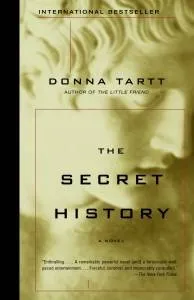 The Secret History – Donna Tartt
The Secret History is quite simply one of the best books I’ve ever read and certainly one of my all-time favorites. Testing the waters of my potential future as a librarian, I started a “Cult Classics” book club in my area. The Secret History was one of our best discussions with people of all ages contributing to the dialogue. Our group usually met in a community room in borough hall, which also housed the library, and after we wrapped up I often went to the library and felt dizzy with excitement and high off the buzz of leading a book discussion. I walked around the library thinking, “this is where I belong.”
The Secret History – Donna Tartt
The Secret History is quite simply one of the best books I’ve ever read and certainly one of my all-time favorites. Testing the waters of my potential future as a librarian, I started a “Cult Classics” book club in my area. The Secret History was one of our best discussions with people of all ages contributing to the dialogue. Our group usually met in a community room in borough hall, which also housed the library, and after we wrapped up I often went to the library and felt dizzy with excitement and high off the buzz of leading a book discussion. I walked around the library thinking, “this is where I belong.”










